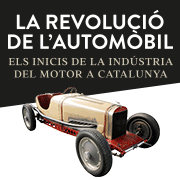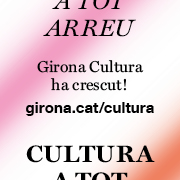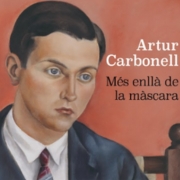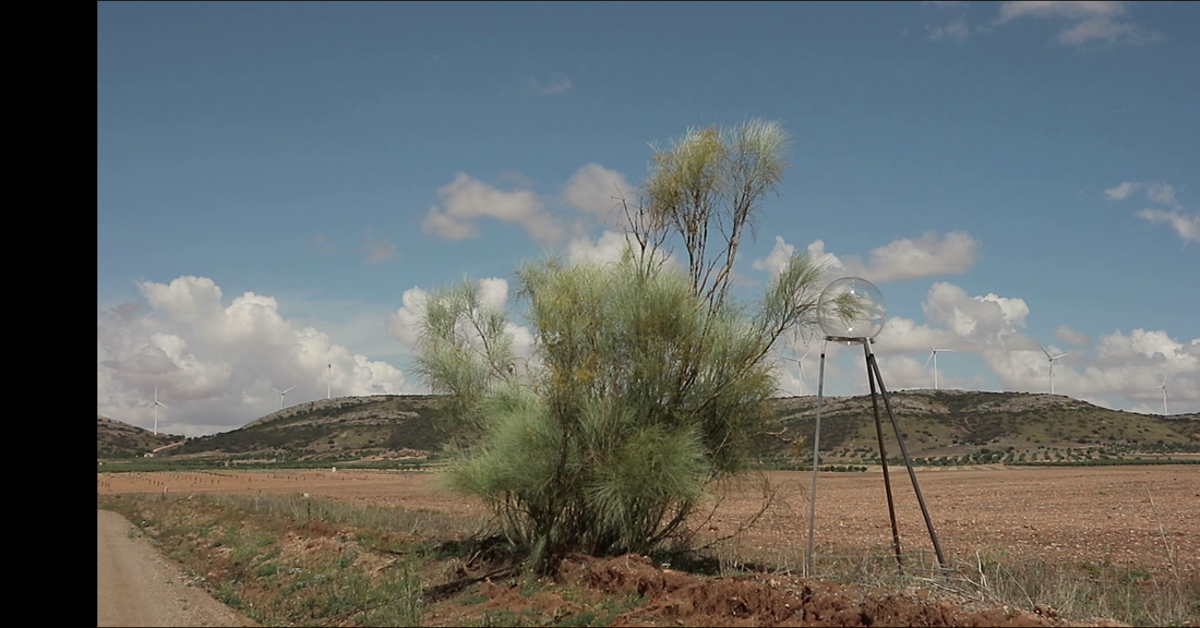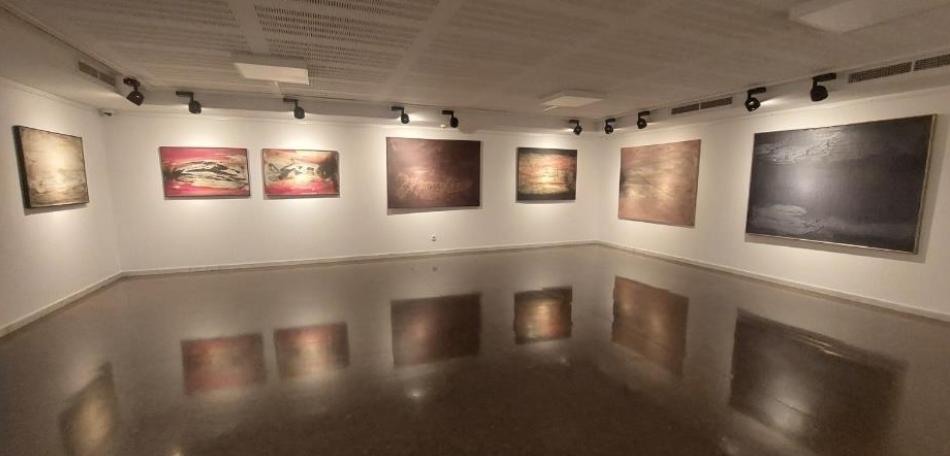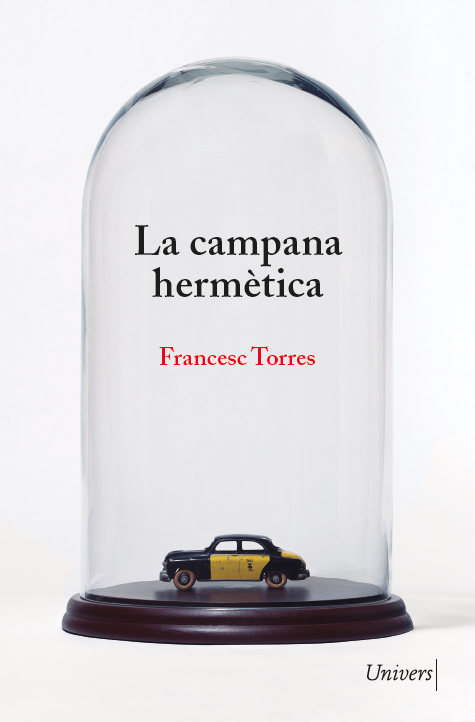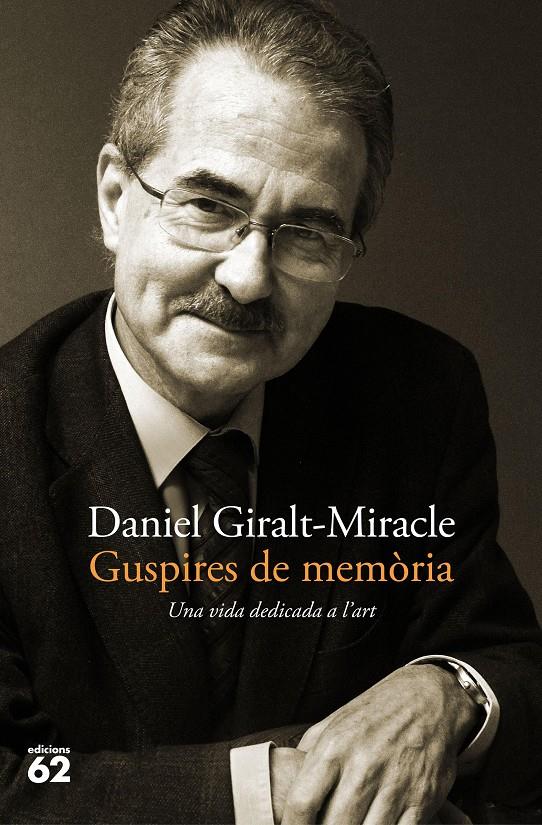interviews
Eloi Planes Corts, President of the Fundació Catalunya Cultura: "If you don't believe in that project or person you invest in, patronage is sterile"
Eloi Planes Corts (Barcelona, 1969) holds a degree in industrial engineering from the Universitat Politècnica de Catalunya and a master's degree in business management from EADA. Second generation of one of the founding families, Eloi Planes joined Fluidra (then Astral) as R&D director in 1994. Since then he has developed an entire professional career that today takes him to the Fundació Catalunya Cultura, from which has been president since September 2023.
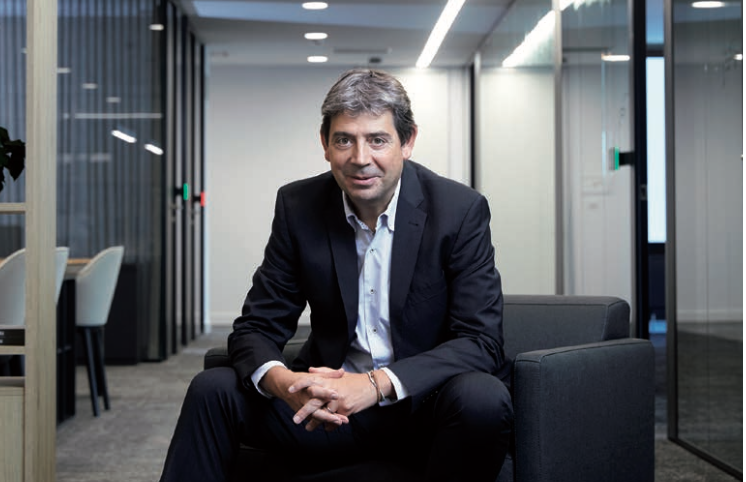
With the aim of building bridges between the world of business and the cultural sector, on October 23, 2014, the Catalunya Cultura Foundation was born, also with the intention of supporting talent and creativity as a way of transformation social and economic of the country. Creating and promoting instruments to develop the sustainability of culture is the great goal of the foundation, which seeks to establish alliances by sharing knowledge, sensitizing the population and training and supporting cultural projects to achieve their viability. Eloi Planes Corts has been its president for more than five years, after a long business career that led him, in 2006, to be appointed general counsel of the Fluidra group, to pilot its IPO and its internationalization In 2016 he became the executive chairman of Fluidra and created the Fluidra Foundation. He is president of the Saló Internacional de la Piscina de Barcelona, director of Dispur SL, president of Fixe Climbing and, for a few months, first president of the Barcelona Chamber of Commerce.
You must have met many entrepreneurs who believe in the power of culture and bet on it. What characterizes them?
A high sense of co-responsibility with the environment and the territory where we have our companies. We are people who want to give meaning to what we do beyond economic gain, and we believe that culture is an ideal vehicle for transforming society, which unites and embraces differences, welcomes and integrates and always projects. It also helps us to attract and retain talent, which is very important nowadays because our workers feel identified with the projects we are involved with.
Fluidra is a multinational company listed on the stock exchange. What drives you to invest in Catalan culture?
Fluidra is a company that was born in Catalonia and has always maintained its headquarters and character there, even though it is now a multinational. It was born and grew as a family business that preserves the values and essence of our land, and nothing better than culture to keep us firm in our roots and beginnings... We keep alive this desire to make our culture and our way of being through the cultural expressions and talent here, of which there is a lot that needs resources to develop.
There are still few companies that believe in culture. What would you say to those who don't have it in their action plans?
Let them try it. Let them approach, discreetly, if they want, cultural projects. Let them bring the culture to their company in the format they want and see directly the impact and the return it brings. Music classes, visits to museums, cultural teambuildings, investments in emerging cultural projects... There are thousands of ways to approach culture or to use culture to convey the improvement of internal relations or company organizational charts or the health of our corporation itself.
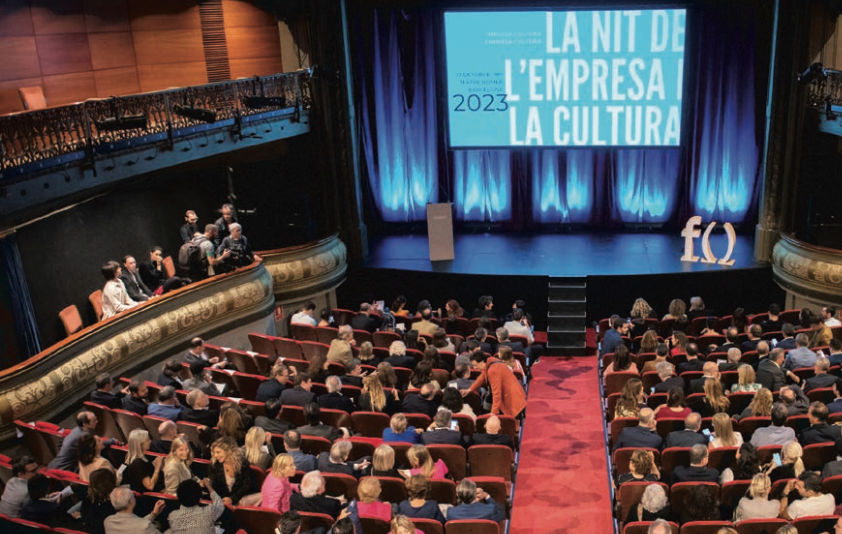
What does it bring to you personally?
As president of the Fundació Catalunya Cultura, being close to the cultural world gives me deep personal satisfaction and a sense of purpose. The cultural world is an inexhaustible source of inspiration, creativity and knowledge. Being in contact with the cultural sector allows me to expand my horizons, constantly learn and contribute to the enrichment of our society through art, literature, music and other forms of cultural expression. In addition, it gives me the opportunity to be an active part in the promotion and preservation of our Catalan cultural identity, as well as to promote intercultural dialogue and cultural diversity in an increasingly globalized world.
Do you think patronage is done out of conviction?
Without any doubt. Patronage implies a belief in what you are betting on. If you don't believe in that project or person you invest in, patronage is sterile. Increasingly, the patron is a person who has a direct involvement with the project he promotes. He likes to participate and feel part of it. He doesn't expect anything in return, but he wants to share the process of creating or making it and enjoys doing it.
Now that the reform of law 49/2002 has been approved, do you think it will help many more companies make the move?
That the legal environment of patronage has improved is a favorable incentive that helps and gives arguments to find a more basis for participation, but I insist that the patron is so because he wants to and not because he is looking for a tax return, for example, to compensate him. One of the most important things that the law has achieved has been to consider real situations that were occurring every day and that the law did not regulate, such as return patronage or recognizing pro-bonos.
The Catalan patron is usually a very discreet person. Why do they want to make it visible with the Impulsa Cultura Seal?
The Catalan business world has experienced very tough situations since the economic crises of 2008-2014, the process, the covid-19... Everything has affected in a very important way how their investments have been regulated, and in many cases aid in the form of patronage or sponsorship had to be cut. This has affected the sector of non-profit organizations, which have seen their contributions greatly reduced when they were already working with very tight budgets. The Catalan patron is discreet because he wants to measure his investments, and nobody likes having to say no when they present you with a beautiful project with more than plausible intentions. With the Seal what we are looking for is to recognize actions of good business practices and set as an example companies larger or smaller that make efforts to support a sector that needs it a lot. We think that through these examples many other companies will perhaps approach the cultural world and we will manage to unite these two worlds that too often look at each other but do not relate.
What is the Catalunya Cultura Foundation that it chairs looking for?
We seek precisely to unite these two worlds, that of the company, with investment capacity, and that of culture, with enormous talent but a lack of resources to be able to launch the maximum number of initiatives of great social, economic, territorial and economic that we believe will help make our country much stronger and richer. We have a mission to help the world of culture to improve its sustainability and to convince the business world that investing in culture is an investment and not an expense.
What are the goals of the foundation now that they are commemorating their tenth anniversary?
Achieving that one day the foundation is no longer necessary because cultural projects are sustainable by themselves to find themselves in an environment where investment in culture is just as committed as investment in technology or research.


